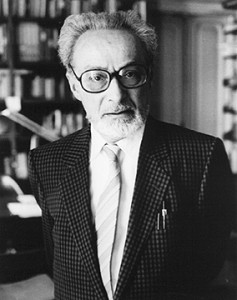Mythologised Suicides? Levi and Turing October 12, 2015
Author: Beach Combing | in : Contemporary , trackbackSuicides are not always easy to determine. Did the man who drove his car into a bridge support do so as a deliberate act because he had just learnt of his bankruptcy or did he do so because he had not slept for 24 hours and was exhausted and prone to error? Did the woman who overdosed on sleeping pills do so because she wanted to die or had she just become confused and careless about how many she was taking after a bad week? Did the man who placed a noose around his neck and then choked himself do so as his wife had decided to leave him or was he actually trying to get some form of erotic and (he had imagined) temporary release? To these must be added the very good intentions of doctors and legal officials doing their honest best to protect family and friends from the financial and legal consequences of a deliberate death. But perhaps there is sometimes the opposite problem, an aesthetic need for suicide among the ‘thinking public’. Two examples:
Primo Levi: PL was the great survivor who gave the most powerful written account of Auschwitz in Se questo è un uomo. In 1987 Levi fell/jumped from an internal terrace of his house and hit the ground, dead, three floors below. The Italian court decided on suicide and this has been waved through by his biographers. There have been though serious doubts cast on whether Levi really took a terrifying leap (where he would have risked bouncing between the house and an adjacent elevator shaft and the ground on the way down): read for instance this excellent article. He had been depressed but was also suffering from dizzy spells: perhaps he collapsed against the railings and tipped over?
Alan Turing: Alan Turing was Britain’s genius cryptographer of the Second World War: the man who invented the ‘modern’ computer. Turing is commonly thought to have committed suicide by ingesting cyanide in an apple in 1954: cyanide poisoning was established by the coroner but the half eaten apple was never tested. Turing had had, it was true, a rocky few years, including a trial for indecency after which he had been forced to take female hormones. But he does not seem to have been particularly depressed at the time of his death. He was, though, working with a gold plater in his room that could have given off cyanide fumes…
The deaths of Levi and Turing were tragedies, both were worthwhile men who passed on before their time. As to their ends there is no certainty either way: though in the case of Levi the doubts are (pace the Italian courts) surely in favour of accidental death as opposed to suicide? But in both cases their suicides have perhaps been retained by biographers and the readers because they fit so well with our ideas of them. There is Turing who has become an unlikely gay martyr (though Turing’s medical treatment had ended a year before his suicide). There has also been some ingenious, pleasing but perhaps entirely misdirected speculation that Turing was trying to recreate a favourite scene from Snow White with a poisoned apple. Then there is Levi who had testified to the holocaust and who had, biographers have suggested, decided (in the middle of a depression) that there was nothing more to say. Elie Wiesel, for example, went on record with ‘Primo Levi died at Auschwitz forty years earlier.’ These were both individuals who were or who became important not only for what they did but for what they represented: and as soon as we start to mythologise we start to distort.
Any other doubtful suicides: drbeachcombing AT yahoo DOT com Please no Marilyn Monroe conspiracy theories, though Marilyn in the nude with her rigored hand wrapped around the telephone is a very powerful image.
30 Oct 2015: KMH writes: Off the top of my head I am thinking of Edgar Allen Poe. According to Wikipedia, On October 7, 1849, at age 40, Poe died in Baltimore; the cause of his death is unknown and has been variously attributed to alcohol, brain congestion, cholera, drugs, heart disease, rabies, suicide, tuberculosis, and other agents.[3]
I [Beach] also can’t resist quoting an email from Nathaniel: A friend doing genealogical research found the death certificate for one of his ancestors. The cause of death is given as “a gunshot wound to the head inflicted in a brief moment of despair”. The ancestor is buried in a Catholic cemetery.




